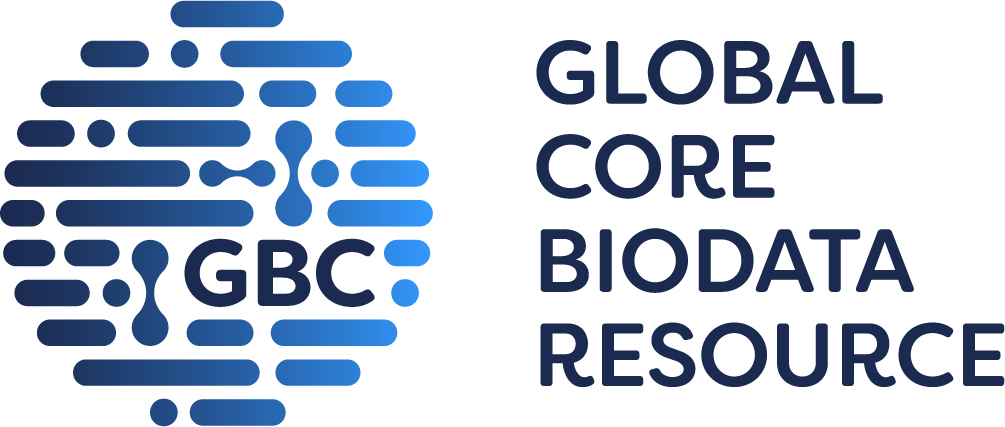
GtoPdb is requesting financial support from commercial users. Please see our sustainability page for more information.
Lymphoma, Hodgkin, Classic; CHL

GtoPdb Disease Summaries
This section gives an overview of the disease, and where available shows the following:
- Synonyms: Shows known synonyms for the disease.
- Description: Gives a basic description/definition of the disease.
- Database Link: External links to the same disease at the Disease Ontology, OMIM or Orphanet sites.
- Immunopharmacology comments: General comments about the target's role in immunopharmacology, provided by GtoImmuPdb curators.
- Associated with: Counts are displayed for the total targets the disease is associated with in GtoPdb. The counts of targets and ligands of immunological relevance associated to the disease are also shown.
More information can be found in the help pages.
✖| Disease ID: | 1047 | |
| Name: | Lymphoma, Hodgkin, Classic; CHL | |
| Associated with: | 1 target | |
| 3 immuno-relevant ligands |  |
|
Targets

GtoPdb Disease Summaries - Targets
Click on the target name to link to its detailed view page
Where available, information is display on the role of the target in the disease; drugs which target the disease and their therapeutic use and side-effects.
If there is mutation data curated in GtoPdb this is indicated, with a link back to the appropriate section on the target detailed view page
Immuno ligand interactions - If available, a table of immuno-relevant ligands is shown. These ligands have been curated as having an association to the disease and possess interaction data with the target in GtoPdb. The approval status of the ligand is shown, along with curator comments and an indication of whether the target is considered the primary target of the ligand.
More information can be found in the help pages.
✖| CIITA |
Ligands

GtoPdb Disease Summaries - Ligands
Click ligand name to view ligand summary page
- Approved: If the ligand is an approved drug this is indicated, along with approval bodies.
- Immuno: Immuno icon indicates the ligand is immuno-relevant
Click the arrow in the final column to expand comments
- Immuno Disease Comments: Curatorial comments specifically added as part of GtoImmuPdb. They give more information on the association between the ligand and disease in the context of immunopharmacology.
- Clinical Use: General clinical comments relating to the ligand and may not necessarily be specific to the disease in question. With hyperlink to more details on the ligand summary pages.
- Bioactivty Comments: Curatorial comments specifically about the compounds biological activity - with hyperlink to more details on the ligand summary pages.
More information can be found in the help pages.
✖| Key to terms and symbols | Click ligand name to view ligand summary | Click column headers to sort | |||||||||||||||||||||||||||||||||||
|
|||||||||||||||||||||||||||||||||||||
References
1. Connors JM, Jurczak W, Straus DJ, Ansell SM, Kim WS, Gallamini A, Younes A, Alekseev S, Illés Á, Picardi M et al.. (2018) Brentuximab Vedotin with Chemotherapy for Stage III or IV Hodgkin's Lymphoma. N Engl J Med, 378 (4): 331-344. [PMID:29224502]
2. FDA. FDA approves Brentuximab vedotin for the treatment of adult patients with primary cutaneous anaplastic large cell lymphoma. Accessed on 10/11/2017. Modified on 10/11/2017. fda.gov, https://www.fda.gov/Drugs/InformationOnDrugs/ApprovedDrugs/ucm584543.htm?utm_campaign=Oncology%2011%2F9&utm_medium=email&utm_source=Eloqua&elqTrackId=06d11c937bec44c79cd3d453daecb608&elq=4d1b00c5aad64538a4ce8e687b3f3786&elqaid=1289&elqat=1&elqCampaignId=770
3. FDA. FDA approves nivolumab plus ipilimumab combination for intermediate or poor-risk advanced renal cell carcinoma. Accessed on 18/04/2018. Modified on 18/04/2018. www.fda.gov, https://www.fda.gov/Drugs/InformationOnDrugs/ApprovedDrugs/ucm604685.htm?utm_campaign=Oncology%204%2F16%2F2018&utm_medium=email&utm_source=Eloqua&elqTrackId=461a88586a9a4db284ceb54da34a6a23&elq=8b10e118e0b249beb2807c129fc264e8&elqaid=3169&elqat=1&elqCampaignId=2374
4. FDA. Nivolumab in combination with ipilimumab. Accessed on 17/06/2016. Modified on 17/06/2016. US Food and Drug Administration, http://www.fda.gov/Drugs/InformationOnDrugs/ApprovedDrugs/ucm465274.htm
5. Francisco JA, Risdon G, Wahl AF, Siegall C. (2006) immunotherapy; fusion proteins; antitumor agents; for treatment and prevention of hodgkin's disease. Patent number: US7090843. Assignee: Seattle Genetics, Inc. Priority date: 09/12/2014. Publication date: 15/08/2006.
6. Larkin J, Chiarion-Sileni V, Gonzalez R, Grob JJ, Cowey CL, Lao CD, Schadendorf D, Dummer R, Smylie M, Rutkowski P et al.. (2015) Combined Nivolumab and Ipilimumab or Monotherapy in Untreated Melanoma. N Engl J Med, 373 (1): 23-34. [PMID:26027431]
7. Moskowitz CH, Nademanee A, Masszi T, Agura E, Holowiecki J, Abidi MH, Chen AI, Stiff P, Gianni AM, Carella A et al.. (2015) Brentuximab vedotin as consolidation therapy after autologous stem-cell transplantation in patients with Hodgkin's lymphoma at risk of relapse or progression (AETHERA): a randomised, double-blind, placebo-controlled, phase 3 trial. Lancet, 385 (9980): 1853-62. [PMID:25796459]
8. Motzer RJ, Escudier B, McDermott DF, George S, Hammers HJ, Srinivas S, Tykodi SS, Sosman JA, Procopio G, Plimack ER et al.. (2015) Nivolumab versus Everolimus in Advanced Renal-Cell Carcinoma. N Engl J Med, 373 (19): 1803-13. [PMID:26406148]
9. Motzer RJ, Tannir NM, McDermott DF, Arén Frontera O, Melichar B, Choueiri TK, Plimack ER, Barthélémy P, Porta C, George S et al.. (2018) Nivolumab plus Ipilimumab versus Sunitinib in Advanced Renal-Cell Carcinoma. N Engl J Med, 378 (14): 1277-1290. [PMID:29562145]
10. O'Sullivan Coyne G, Madan RA, Gulley JL. (2014) Nivolumab: promising survival signal coupled with limited toxicity raises expectations. J Clin Oncol, 32 (10): 986-8. [PMID:24590655]
11. Postow MA, Chesney J, Pavlick AC, Robert C, Grossmann K, McDermott D, Linette GP, Meyer N, Giguere JK, Agarwala SS et al.. (2015) Nivolumab and ipilimumab versus ipilimumab in untreated melanoma. N Engl J Med, 372 (21): 2006-17. [PMID:25891304]
12. Reusch U, Burkhardt C, Fucek I, Le Gall F, Le Gall M, Hoffmann K, Knackmuss SH, Kiprijanov S, Little M, Zhukovsky EA. (2014) A novel tetravalent bispecific TandAb (CD30/CD16A) efficiently recruits NK cells for the lysis of CD30+ tumor cells. MAbs, 6 (3): 728-39. [PMID:24670809]
13. Younes A, Connors JM, Park SI, Fanale M, O'Meara MM, Hunder NN, Huebner D, Ansell SM. (2013) Brentuximab vedotin combined with ABVD or AVD for patients with newly diagnosed Hodgkin's lymphoma: a phase 1, open-label, dose-escalation study. Lancet Oncol, 14 (13): 1348-56. [PMID:24239220]







